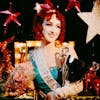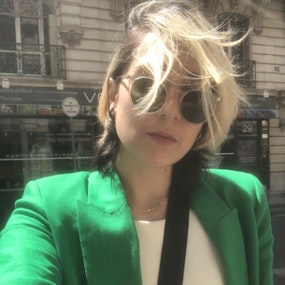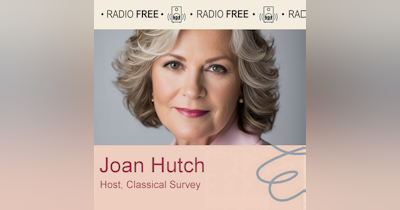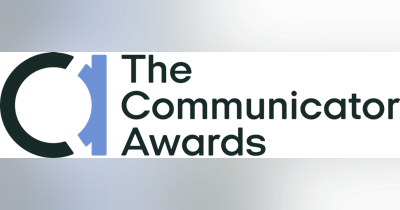Pop’s newest icon is called Chappell Roan and we are literally witnessing the birth of a new category of a queer superstar with her debut album The Rise and Fall of a Midwest Princess. It has been a hot minute since we’ve been gifted such a purely pop record with glamorously weird outbursts balanced by introspective ballads. For it to be Roan’s debut says a whole lot more about her growing impact and cultural significance.
This album is where a pop princess embraces yodeling, it’s where cowboy boots meet glitter, it’s where cheerleading and drag mingle, it’s where we all can be queens everyday. The eclectic fusion of camp, vintage charm that taps into an 80s aesthetic, and cheerleader-like exuberance creates an unparalleled universe. Each track is an individual character, weaving together a kaleidoscope of sound that is brave enough to challenge expectations of a debut pop record. There’s no safety zone in between songs. Each one slaps you in the face with a different vibe, leaving you utterly unprepared for what comes next.
She kicks it all off with ‘Femininonmenon’’s theatrical introductory arrangement, hinting that a grand Broadway show is about to begin. The first track's exuberance serves as a litmus test, determining who will stay. It either captivates you, making you clench for more or prompts you to leave as soon as possible. It's the ultimate musical door policy – either groove with the storming beat that Roan fervently demands throughout the song with her emphatic “Um, can you play a song with a fucking beat?” or leave ASAP if you can't handle it!
What's particularly refreshing about this record is hearing clearly joyful music that is unmistakably queer.
‘Red Wine Supernova’, the second track on the album, couldn’t get obviously queerer than that. Right off the bat she makes it clear it’s about another woman: “She was a Playboy, Brigitte Bardot. She showed me things I didn't know. She did it right there, out on the deck”.
This flirty celebratory anthem of women loving women, describes the queer experience of completely falling hard for a girl: “fell in love with the thought of you, now I'm choked up, face down, burnt out” - a little too relatable, Roan! Reflecting on the track, the singer-songwriter has made it clear that she “needed a campy gay girl song that captured the magic of having feelings for another girl,” [...] “I packed the song with fun raunchy lyrics that make it feel like a night out flirting with the girl across the bar!”
‘Super Graphic Ultra Modern Girl’ is another queer pop anthem that Roan actually dedicated to the LGBTQ+ community: “I wrote that for them. I need a song on the record that is undeniably a gay pop anthem. The secret to it was Charli XCX’s producer, Mike Wise,” she told Rolling Stone.
In fact, this ever-existing yet undermined thirst for explicit and genuine queer representation in lyrics, in music and even in pop prevails but Roan comes right in with this album to serve!
'Pink Pony Club,' is a track that gives big ‘Born This Way’ energy with its message of empowerment to revel in one’s authenticity. Roan captures the essence of growing in a small conservative town and wanting to break out of societal expectations to be your full self. She reminds us all of her mother's haunting question, “God, what have you done?”' to which she replies “Oh mama, I'm just having fun, on the stage in my heels, It's where I belong down at the Pink Pony Club”. It just hits home, especially for queer people. It’s a sappy bop that encapsulates bursting in queer joy that comes through longing for acceptance and the desire to embrace one's true self. As Roan resiliently sings, “I’m gonna keep on dancing at the pink pony club, with my boots it’s where I belong”, it’s an empowering queer anthem that you’d definitely want to blast and scream-sing to. Oh, and yes - Roan’s loudness is in fact infectious!
Throughout the album there’s a kind of expression of queerness and sexuality that is neither subtextual, nor whispered or just sung about but rather, belted!
This is what makes this album also hold profound cultural significance, particularly for the LGBTQ+ community. It goes beyond mere representation.
Earlier this year, Chappell Roan crafted a love letter expressing her gratitude for queer individuals who have played a pivotal role in leading her to profound happiness she had never experienced before. Most recently, in response to this album, the queer community wrote back to Roan in a video letter compiled by X user @mp3f1les stating the following: “The album feels like a montage of the most incredible parts of being queer while simultaneously getting the best hug of your life. You were exactly what we needed right now, someone to rally behind who represents what the queer community is and can be.”
These queer bops scattered around the album are, however, laced by slower tracks. ‘Coffee’, is a melodramatic track that captures the familiar complexity of human relationships, where even the simplest gestures are layered with unspoken intentions and buried truths highlighted by her shattering: ”'Cause if we do coffee. It's never just coffee”. ‘Kaleidoscope’ is another fitting breath of tranquility and introspection, where Roan actually unleashes the palette of her vocal richness with a delicate backdrop of a pensive piano progression. She showcases her reflection on the absurdity of love, turning the simplest of lyrics into moments of realization: ”And love is a kaleidoscope, how it works we'll never know, and even upside down, It's beautiful somehow”.
This album is a real glittery unpredictable journey that no one is ever really ready to jump on. As the album title implies, the rise and fall of a midwest princess - you will find a little bit of everything: some of your highest highs and crushing lows, triumph and heartbreak, grounded realizations, and moments of sheer absurdity. Roan skillfully balances moments of pure adrenaline, where the listener can almost taste victory, with heart-wrenching instances that hit too close to home. The album isn't merely a compilation of songs; it's really jumping on the pink pony of a midwest princess and making the most out of the ride...
###
FAQs About This Article
wherein Anthropic's Claude AI reads the article and suggests a few questions that remain unanswered...
Q: The article mentions that this album holds profound cultural significance for the LGBTQ+ community beyond just representation. Can you elaborate on how Chappell Roan's music uniquely resonates with and impacts queer listeners compared to other pop artists?
A: Chappell Roan's music resonates uniquely with the LGBTQ+ community because her lyrics provide explicit, genuine representation of queer experiences and celebrate queer joy. Songs like 'Red Wine Supernova' unmistakably depict women loving women with "fun raunchy lyrics", while 'Pink Pony Club' offers an empowering message about embracing one's authentic self despite societal expectations. Roan dedicates songs like 'Super Graphic Ultra Modern Girl' to the LGBTQ+ community as "undeniably a gay pop anthem." The queer community has expressed that the album "feels like a montage of the most incredible parts of being queer" and that Roan is "exactly what we needed right now, someone to rally behind who represents what the queer community is and can be." So beyond just depicting queerness, Roan's music boldly rejoices in it and provides much-needed solidarity.
Q: The review describes the album as an "eclectic fusion of camp, vintage charm that taps into an 80s aesthetic, and cheerleader-like exuberance". What specific musical elements, production techniques, or artistic influences does Roan draw upon to create this distinct sound and vibe throughout the record?
A: To create the album's eclectic sound, Roan draws on influences like 80s pop aesthetics, theatrical Broadway-style arrangements, and dynamic beats that make you want to dance. The opening track 'Femininonmenon' sets the tone with its "theatrical introductory arrangement" and Roan's emphatic demand for "a song with a fucking beat". Camp and cheerleading vibes infuse the record's exuberance. Roan also taps top pop producers like Charli XCX collaborator Mike Wise to help craft the sound, especially on queer anthem 'Super Graphic Ultra Modern Girl'. Vintage charm mingles with modern production throughout, yielding a "kaleidoscope of sound that is brave enough to challenge expectations of a debut pop record."
Q: Several songs on the album like 'Pink Pony Club' and 'Super Graphic Ultra Modern Girl' are called out as queer anthems. Are there any other tracks that particularly stand out in their joyful, empowering expression of queerness and sexuality? How do the lyrics and musical composition work together to convey these themes?
A: In addition to the queer anthems 'Pink Pony Club' and 'Super Graphic Ultra Modern Girl', other tracks that stand out for their joyful, empowering expressions of queerness include 'Red Wine Supernova', described as a "flirty celebratory anthem of women loving women" with "fun raunchy lyrics that make it feel like a night out flirting with the girl across the bar." The lyrics vividly depict queer desire and the thrill of "completely falling hard for a girl." Overall, Roan's queerness is "neither subtextual, nor whispered or just sung about but rather, belted" throughout the album. Infectious, danceable melodies back up bold lyrics that revel in queer experiences, creating undeniable queer pop anthems designed for blasting and singing along to.






